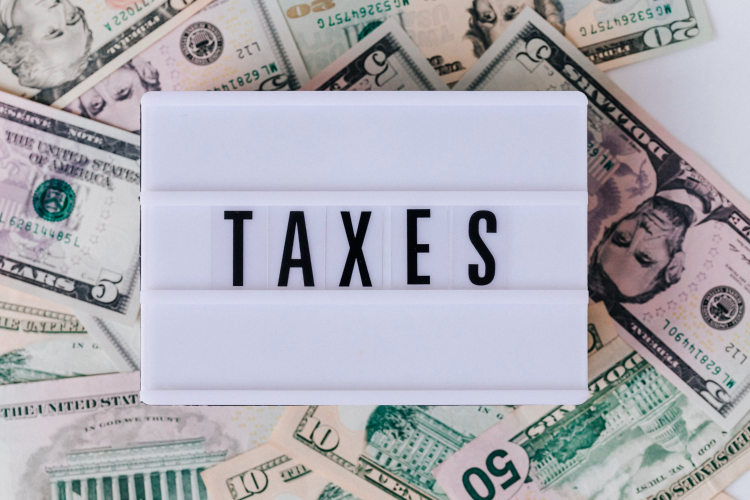
Introduction
Bitcoin is the father of all cryptocurrencies, as well as the first official application of blockchain technology. Given this, it is an inherently disruptive technology. Its continued surge in popularity and acceptability is giving traditional ledger companies a run for their money. Bitcoin has provided and successfully maintained a decentralised and yet secure digital currency solution.
Governments regulate and tax the finances of their citizens, which is why using tax software has become so important. Due to Bitcoin's increasing resilience and wide acceptability, it only makes sense that governments would be uneasy about this technology. Therefore, it is crucial to use a quality crypto tax software program to stay ahead of the curve.
Exchanges like Binance and Coinbase have integrated Bitcoin into conventional financial services. Cryptocurrency exchanges have managed to peg fiat currencies like USDT to the price of the dollar. The increasing presence of Bitcoin in finance is evidenced in Bitcoin Smart contracts which are traded on major institutional exchanges like the Chicago Mercantile Exchange and the Chicago Board Options Exchange.
There is counter-pressure on Bitcoin from the institutional market in the form of cryptocurrency taxation.
Taxable and Non-Taxable events
Non-Taxable events
— Holding crypto after the purchase with fiat currency
— Donations made in crypto to tax-exempt institutions such as non-profit or charity organisations.
— Receiving a gift in crypto
— Giving a gift in crypto
— Transferring cryptocurrency to yourself
Taxable events
— Mining rewards paid in crypto
— Getting crypto after selling goods or rendering services
— Rewards gotten from your cryptocurrency liquidity pools
— Airdrops are taxable
— Reward from cryptocurrency exchanges or brokers.

How to calculate your crypto taxes
IRS.gov contains a comprehensive guide for the latest guidelines on federal income taxes.
Before a taxable event must occur for your crypto assets, it needs to yield profits. You determine your profitability level by calculating your cost price and selling price for a cryptocurrency.
Your cost price is the price (determined by the market price) you purchased your crypto at, and the selling price is the price you sold your assets for.
There are two types of gains: short-term and long-term capital gain.
The difference between the short-term capital gain and the long-term capital gain is the time it takes between the purchase and disposal of your crypto.
If this duration is within one year, we can classify it under short-term gains. They are subjected to greater tax rates.
Long-term gains are gains that have accrued for over a year. They are generally subject to fewer tax rates.
Frequently Asked Questions
1) Can I offset my crypto losses with capital gains from my trading stocks?
Suppose you have capital gains in the stock market and capital losses in the cryptocurrency market. In that case, you can net them together because capital gains remain capital gains, no matter where they come from. Your capital losses are not just going to be limited to the cryptocurrency market. It can be used and applied to your other investment and capital gains as well.
2) If I bought Bitcoin for $10,000, it goes up in value to $60,000, and I then transferred it to a friend's wallet, what would the tax consequences be?
The tax consequences depend on how the scenario plays out. Did you sell the coin to your friend? Did you give the Bitcoin to your friend? Is your friend just holding on to the Bitcoin for you?
If you sell Bitcoin to your friend, it will be taxed as a capital gain. In this scenario, you are going to recognise a taxable gain of $50,000.
If you give the Bitcoin to your friend, and if your friend is not a charitable organisation, then they are not tax-exempt.
If your friend is holding it for you, then there is no taxable event in that scenario.
3) Let’s say I bought Bitcoin and I made $100,000 in profit, and then I bought another crypto and I lost $100,000. Do I still need to pay taxes on the $100,000 I made on Bitcoin?
When you net your profit from Bitcoin with your loss from the other cryptocurrency you bought, you are going to get a net-zero effect. You didn't make any money, so you have no taxable income in that situation.
However, as we discussed earlier, the disposition of the crypto-asset determines its taxability or non-taxability. In the above scenario, if you did not dispose or sell off the crypto asset that you made losses from, you will not be able to offset paying taxes with the losses you made on such cryptocurrency.
4) I bought one Bitcoin in January for $10,000. I bought another Bitcoin in March for $60,000. I sold one of my Bitcoins for $60,000. Do I pay taxes?
This depends on which Bitcoin you are selling. There will be a significant tax difference between the Bitcoin you bought in January or the one you bought in March.
Suppose you report selling Bitcoin in January. In that case, you'll have a taxable profit of $50,000, whereas reporting the Bitcoin you bought in March is subject to zero tax since there is no net gain on the disposition of this asset.
Your cryptocurrency activities will be tracked by the batch (exactly where it came from), but, ultimately, you get to decide.
Can the IRS Track Cryptocurrency?
You will find yourself in one of three situations, and it will depend on which exchange you use.
Here are the three situations:
1. Your activities will be reported: The IRS will know about your trading and how much money you made. In this scenario, you will be issued a 1099b tax form. A platform such as Robinhood will give you information about how much money you made, what asset you bought, what asset you sold, and the amount you gained or lost on each transaction.
After filling the 1099b form on Robinhood, they send a copy of the 1099b to the IRS, which allows them to monitor all of your account's activities.
2. When your activity is not recorded: The IRS will be in the dark regarding your cryptocurrency transactions. However, they can easily have access to your cryptocurrency transaction information if they want. Coinbase does not issue a 1099b form at this moment, but they will give you other tax forms for different situations.
The IRS will have to get a court order to get your crypto transactions from these exchanges. If you conduct transactions in an account of a U.S compliant exchange, the IRS has access to your records.
3. Your information will not be reported, and, even if the IRS wanted to get your information, it would not be accessible.
This applies to most exchanges that are not U.S based. Let’s say the U.S sends Kucoin a court order to get your transaction history. That court order will be nullified since it's outside the jurisdiction of the United States.
Conclusion
Cryptocurrencies are here to stay, and so does their taxing. It is advisable to consult tax experts when doing your taxes. If you have losses on Bitcoin or any other cryptocurrency, make sure you declare them on your tax return and see if you can reduce your tax liability. The IRS is constantly on the lookout for cryptocurrency tax offenders. Those who do not comply with this can face penalties ranging from interest to criminal prosecution.















